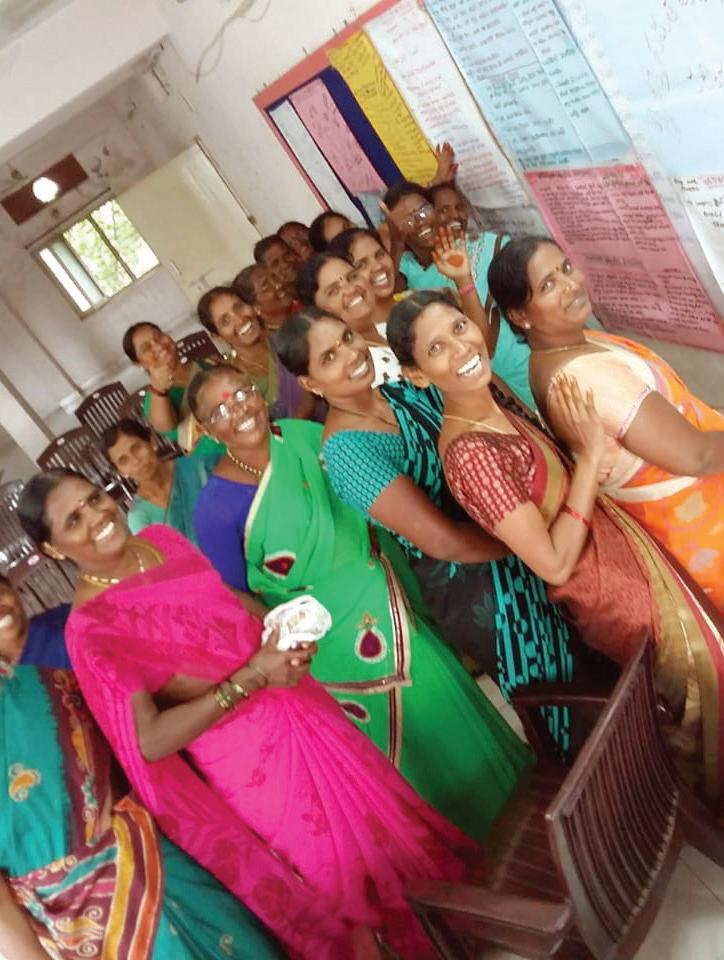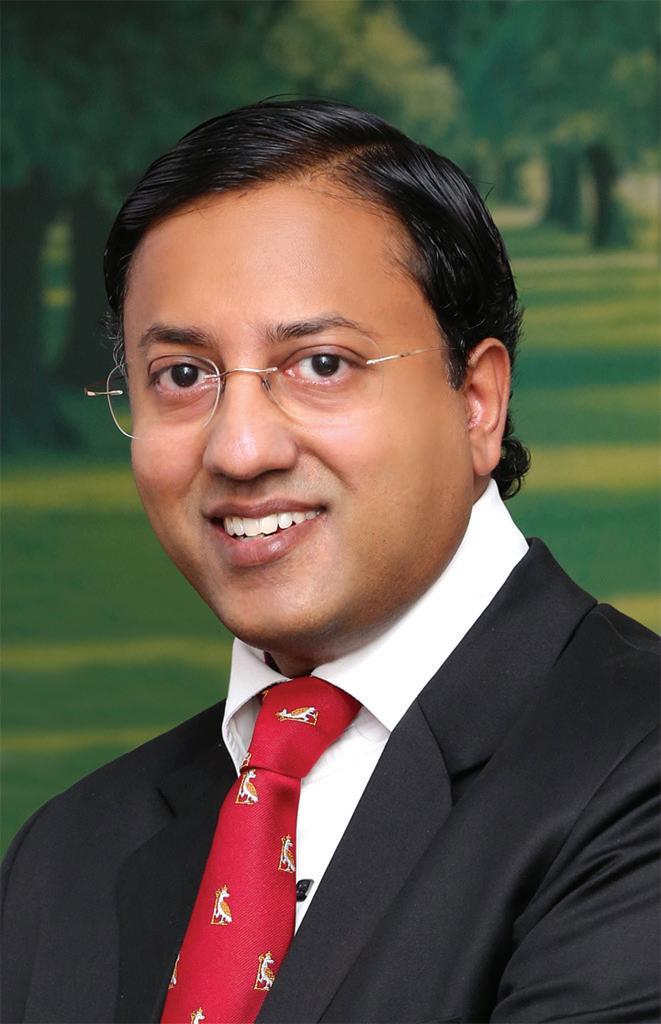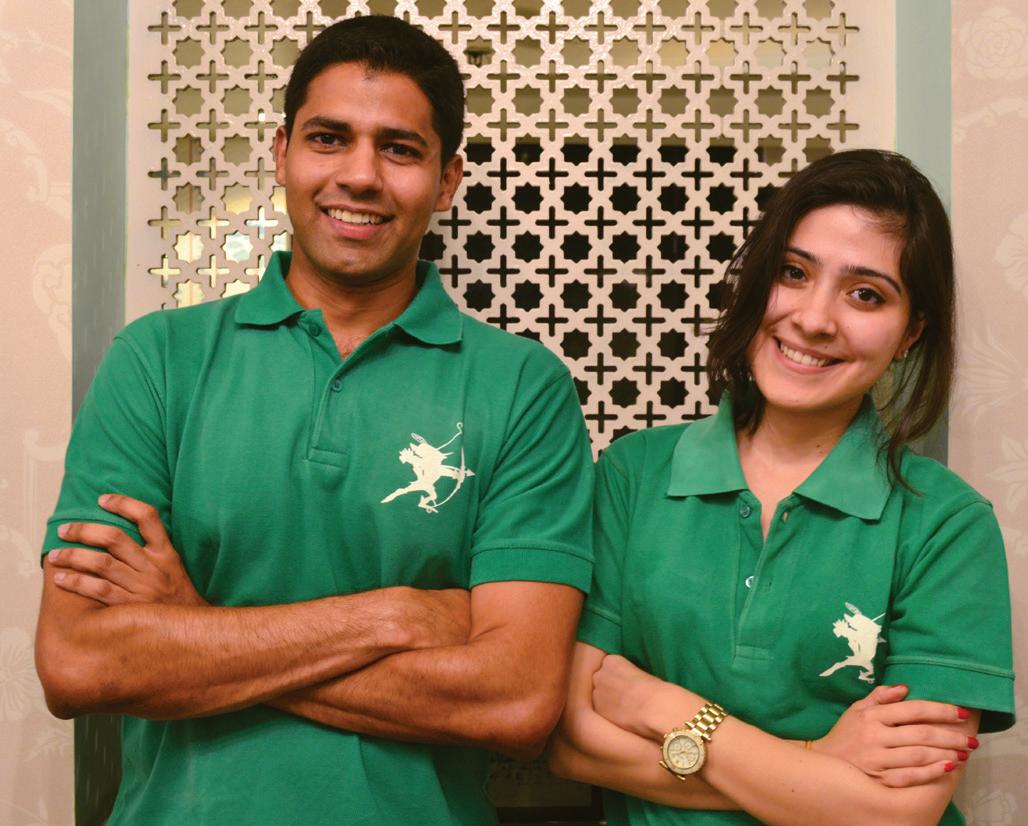Kameshwari has become eloquent and vocal about the importance of regular breast screenings with the women she interacts with in her work as a research consultant who gets riled up about the secrecy surrounding cancer. “There is an unspoken taboo about cancer, especially breast cancer, I felt. I called up my siblings, my friends and sister-in-laws and told them about my prognosis. I guess that was me, I wanted to talk about it maybe because it helped me. But then, I realised after I shared that I had cancer with them they told me of cases in their family that I had not known about earlier,” she points out. In fact, this cancer conqueror says that patients should never hesitate to share their fears and concerns. “Talking helps in overcoming anxieties; reach
Kameshwari put him in touch with the project-incharge at the Society for Elimination of Rural Poverty (SERP) and Dr Raghu Ram actively set the wheels in motion. This led to a largescale population-based breast cancer screening programme, in which healthcare workers trained under the auspices of UBF conducted Clinical Breast Examination (CBE) to detect cancer in early stages amongst women aged between 35 – 65 years. So, between 20122016, over 200,000 women spread across 4,000 villages in Telangana and Andhra Pradesh were screened for early signs of breast cancer and those diagnosed with breast cancer were treated free of cost through the government funded Arogyasree scheme. out to a friend or family member,” she suggests. But, she advises against tapping the Internet for information because it can damage one’s psyche and emotional wellbeing.
Kameshwari did not change her diet in any significant way either. Many of her friends working with her on women’s health issues gave her plenty of suggestions. She had just reduced her dairy and sugar intake which she had found difficult. “I have not given them up completely but I take them in moderation. As a vegetarian, I had to ensure to include sufficient protein in my diet and started to have an egg fairly frequently. That is again something that was not so easy to adapt to,” she reveals. In her interaction with Dr Raghu Ram, she had discussed the work she had done with rural women as a consultant with the education ministry. So, one thing led to another and they discussed the possibility of the Ushalakshmi Breast Cancer Foundation (UBF) raising awareness about the importance of early detection of breast cancer and conducting a screening programme for under-privileged women in rural areas, utilising the services of government healthcare workers. Kameshwari has become eloquent and vocal about the importance of regular breast screenings with the women she interacts with in her work as a research consultant. “The battle is more than half won, when women are mindful and make a conscious effort to look after their health,” she says. Kameshwari knows what she is talking about in more ways than one.
Kameshwari’s three coping mechanisms to fight cancer
6
•
Strong family support. This is crucial as it helps to know that no matter what, you have your close ones to hold your hand and just be there
•
Mental fortitude and the self-belief that one can overcome. This is the most difficult but do not be ashamed of being fearful or worried. You need to believe that you can battle, overcome and move ahead in life. You need to strongly cling on to this belief because the mind can and does influence how we cope. You can be your own healer
•
Do not give up on one’s passions and work is equally crucial. Getting back to normalcy as fast as possible is the best step forward. I have found it is important not to wallow in self-pity and feel that one’s world has crashed. Household routines and chores, immersing oneself in whatever work one does, and being quite open helps immeasurably



